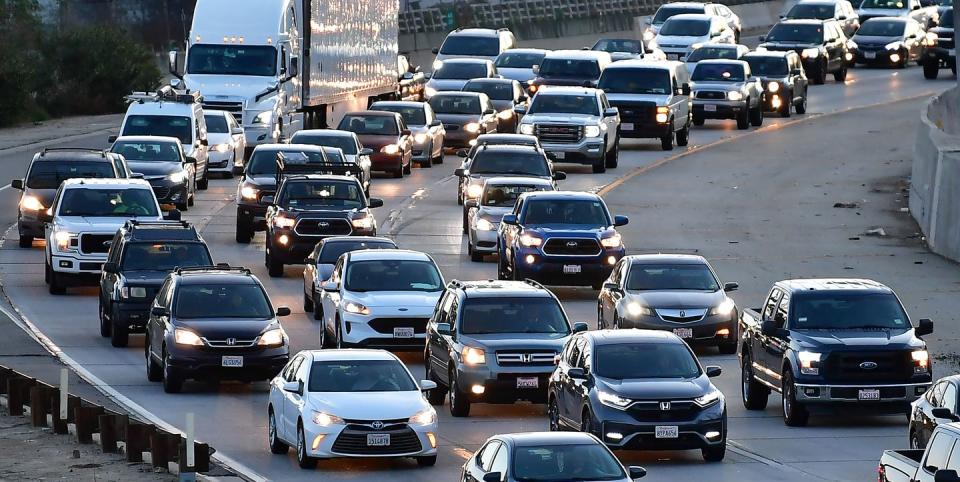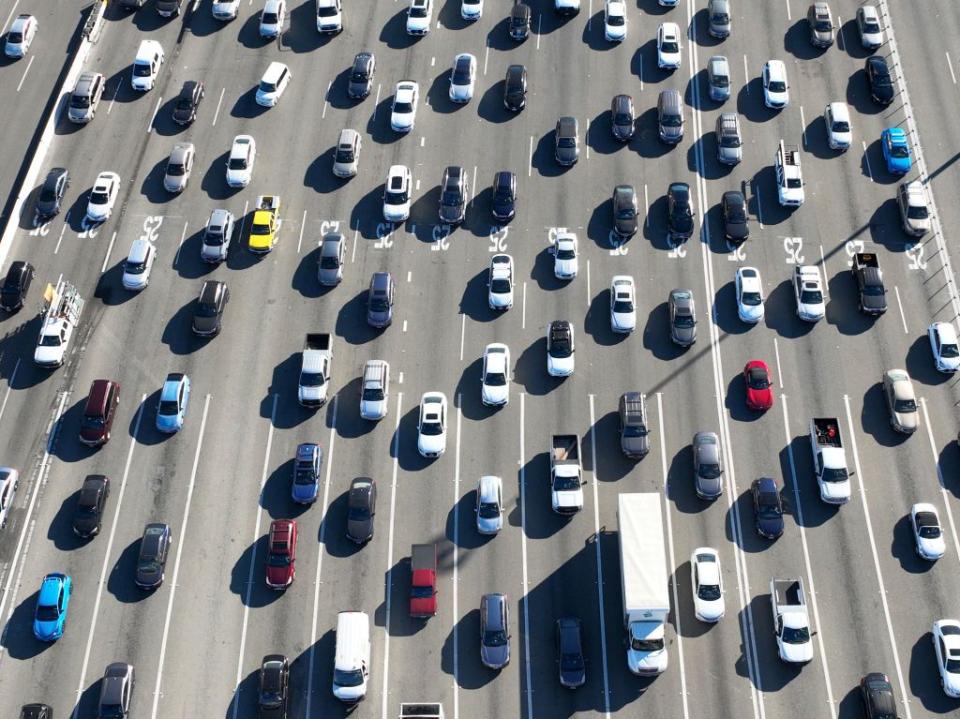Expect the Busiest July 4 Travel Weekend in Years

AAA expects 42 million Americans to travel by car this weekend, with the overall volume of travelers expected to be the second highest since the year 2000.
The national average gas price has retreated a bit from the $5.00 mark seen just a couple of weeks ago, but gas prices remain well above $4.50 in many states, with others far above the $5.50 mark.
High airfares, hotel rates, and diminished rental car availability are seen as contributing to higher car usage this summer, as Americans take smaller vacations with shorter travel times.
With airfare prices still well above where they were a short three years ago, this upcoming July 4 weekend is expected to be the second busiest since the year 2000, with 47.9 million Americans expected to travel 50 miles or more by car or by air, AAA predicts. This projected number, with 42 million expected to travel by car, will represent a 3.7% increase over the previous year, which was still greatly affected by pandemic-related disruption. And it will happen against a backdrop of high gas prices, setting the stage for a very busy week of travel.
One bit of slightly positive news is that the national gas price average has retreated a bit from its post-Memorial Day highs of over $5.00 a gallon, and is currently sitting at $4.89 as of Monday, June 27. Of course, the bad news is that in over a dozen individual states, the average gasoline price is well above $5.00 a gallon, and even in those states where it isn't it's generally not far from that mark, offering little respite.
"The volume of travelers we expect to see over Independence Day is a definite sign that summer travel is kicking into high gear," said Paula Twidale, senior vice president, AAA Travel. "Earlier this year, we started seeing the demand for travel increase and it's not tapering off. People are ready for a break and despite things costing more, they are finding ways to still take that much needed vacation."
The main question this year will be the extent to which the high airfare prices, with 3.55 million expected to fly (compared to 3.91 million in 2019), and reduced rental car availability will force more Americas to drive despite the noticeably high gas prices. July 4 is not as big of a travel holiday as Thanksgiving, when between 50 and 55 million usually travel, and it's not as big overall as the December holidays, as people take less time off.
Overall, Independence Day ranks as the third busiest US travel holiday after the Christmas and New Year's travel season, with Thanksgiving in second place. Memorial Day is in fourth place and Labor Day in fifth.
It does tend to coincide with the summer driving season, creating different effects on gas prices, airline operations, and other elements.
AAA notes that the average lowest airfare is still 14% higher than in 2021, now resting at $201 per ticket, while hotel rates have increased 23%.

When it comes to availability, however, rental car companies remain constrained by smaller fleets, which they have worked to pare down in the months following the start of the pandemic, and have not been able to bring up to meet the demand due to the chip crisis affecting the auto industry. As a result, rental cars remain at a premium, and many companies will certainly charge travelers that premium, especially when it comes to many in-demand models.
This combination of higher airfare prices and higher rental car rates could tip the balance toward driving this year, which is what is currently seen as unfolding, as Americans deal with increased costs on other items.
"We drive to North Carolina every year, and it's a pretty long drive, but it beats flying, because with all the hassle in the airports it feels like it can take longer door to door," one family from New York told Autoweek. "We take a whole week off though so we don't see traffic that's as bad as around July 4 itself. And we bring a lot of stuff with us."
When it comes to flying, Friday, July 1, is expected to be the busiest for air travel, while Monday, July 4, itself will be the lightest out of the entire weekend.
AAA expects the afternoons of Thursday, June 30, and Friday, July 1, to be the worst times for car travelers, as Americans leave work early to make it to their weekend destinations, with highways outside the major cities being the usual spots to see serious congestion. Avoiding travel on these two afternoons is difficult, of course, for obvious reasons, with AAA only noting that leaving before sunrise will pay some dividends, if traveling by car.
"Even with gas hitting record prices, travelers are still eager to hit the road this summer. We expect nationwide travel times to increase about 50% compared to normal. Drivers around major metro areas must be prepared for significantly more delays," said Bob Pishue, Transportation Analyst, INRIX.
Will you be traveling by car this weekend, will you fly, or are you taking a staycation? Let us know in the comments below.

 Yahoo Autos
Yahoo Autos 